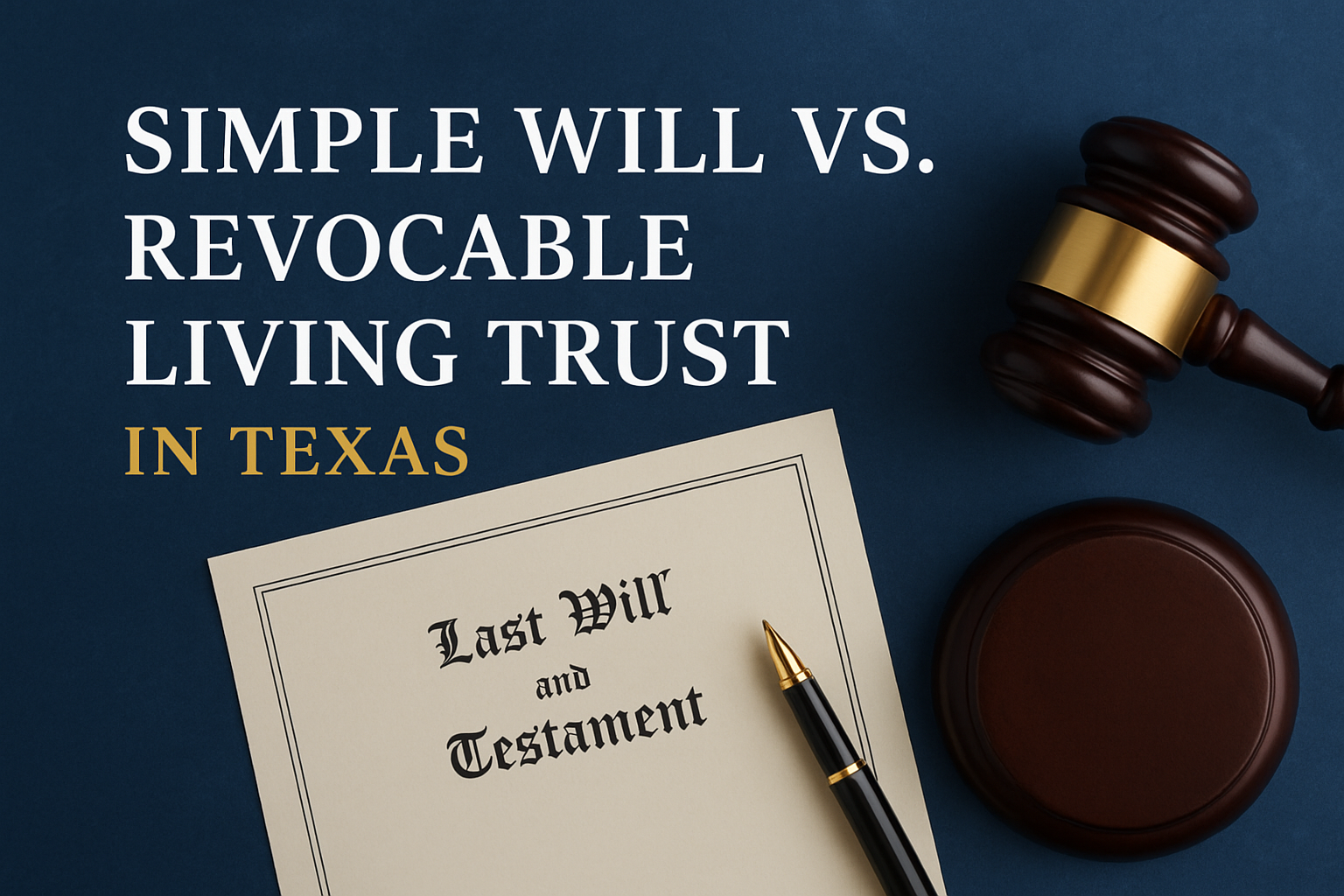Understand whether a simple will or a revocable living trust is best for your Texas estate plan. Explore the benefits, drawbacks, and legal considerations from an estate planning attorney..

Estate planning is one of the most important steps you can take to protect your family, your assets, and your legacy. Yet one of the first questions many Texans ask is:
“Should I create a simple will or a revocable living trust?”
Both tools play a vital role in estate planning, but they serve different purposes and carry distinct advantages. The right choice depends on your goals, the nature of your assets, and how you want your affairs handled during your lifetime and after your death.
Below, I explain how each works, the key pros and cons, and how to determine which option best fits your circumstances.
A simple will is a foundational estate planning document that specifies how your property should be distributed upon your death. It also allows you to appoint an executor to administer your estate and, if applicable, name guardians for minor children.
For a will to be valid under Texas law, it must:
Once the testator passes away, the will must go through probate—a court-supervised process to validate the will, settle debts, and distribute the estate.
A revocable living trust is a legal arrangement that allows you to transfer ownership of your assets into a trust during your lifetime. You serve as the trustee, maintaining full control over your property, and may amend or revoke the trust at any time.
Upon your death—or if you become incapacitated—a successor trustee you’ve designated steps in to manage or distribute the trust property according to your instructions.
Texas is somewhat unique when it comes to probate. While probate can be cumbersome in many states, Texas does offer a relatively efficient process, especially through independent administration—a procedure that allows the executor to manage most estate matters without direct court supervision.
Still, avoiding probate entirely can offer substantial benefits in terms of privacy, simplicity, and speed—especially for individuals with complex estates or property in multiple states.
Other Texas-specific considerations include:
Get in touch with an estate attorney to discuss how these considerations may impact your estate planning process.
If your estate is modest and you are comfortable with Texas’s streamlined probate process, a simple will may meet your needs.
If you wish to avoid court involvement, protect your privacy, or plan for incapacity, a revocable living trust may be the better option.
In many cases, the most effective estate plan includes both: a revocable living trust to hold major assets and a “pour-over will” to ensure any remaining property is transferred into the trust after your death.
Every family’s goals and assets are unique. The best estate plan is one that’s tailored to your situation and implemented with care.
A consultation with a Texas estate planning attorney will help bring you peace of mind and ensure you find the option that works best for you and your family.